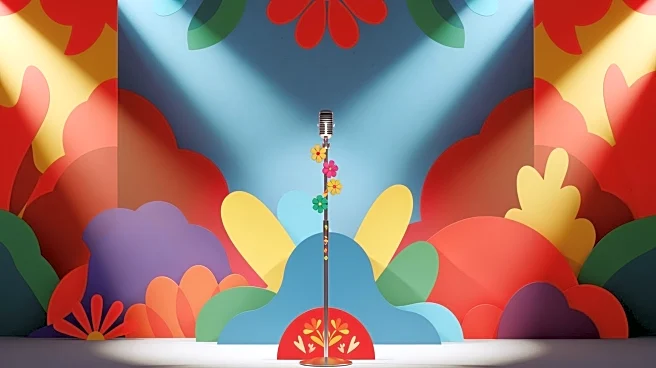What's Happening?
HBO Max is progressing with its development of a TV series based on 'The Conjuring' film franchise. Nancy Won has been appointed as the showrunner, writer, and executive producer for the series. Additionally, Peter Cameron and Cameron Squires are involved as writers. The series aims to continue the narrative established by the successful film franchise, which has grossed nearly $2.5 billion worldwide. The announcement follows the recent release of 'The Conjuring: Last Rites,' which has performed well at the box office. The series is produced by James Wan's Atomic Monster and Warner Bros. Television, with Peter Safran as an executive producer.
Why It's Important?
The development of 'The Conjuring' series on HBO Max signifies the platform's commitment to expanding its horror genre offerings, leveraging the popularity of the existing film franchise. This move could attract a dedicated fan base and boost subscriber numbers, enhancing HBO Max's competitive edge in the streaming market. The involvement of experienced writers like Nancy Won, Peter Cameron, and Cameron Squires suggests a high-quality production that could further solidify the franchise's success. The series may also influence the broader entertainment industry by setting a precedent for adapting successful film franchises into television formats.
What's Next?
As the series progresses, viewers can anticipate further announcements regarding casting and plot details. The show's development may prompt reactions from fans and critics, potentially influencing its direction. HBO Max might also explore additional spin-offs or related content to capitalize on the franchise's popularity. The success of the series could lead to more film-to-TV adaptations, impacting industry trends and strategies.
Beyond the Headlines
The adaptation of 'The Conjuring' into a TV series raises questions about the evolving nature of storytelling in the entertainment industry. It highlights the shift towards serialized content that allows for deeper character development and complex narratives. This trend may affect how audiences engage with horror genres, potentially leading to more immersive and long-form storytelling experiences.










